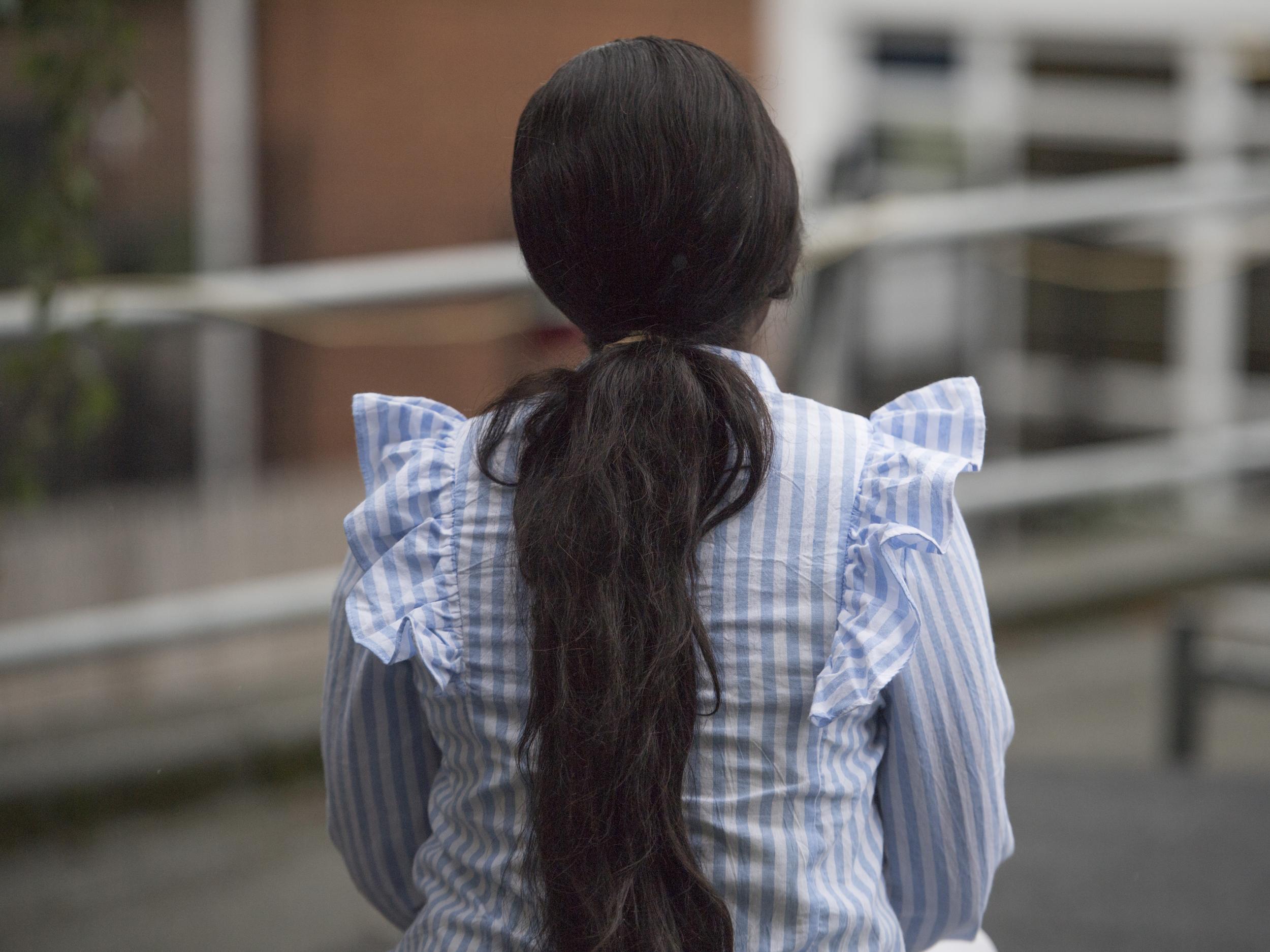‘My son was talking and now he’s stopped’: Modern slavery victims’ children let down by authorities, report finds
‘I felt like the world was finished, like I didn’t have a life anymore,’ says mother and modern slavery survivor

Your support helps us to tell the story
From reproductive rights to climate change to Big Tech, The Independent is on the ground when the story is developing. Whether it's investigating the financials of Elon Musk's pro-Trump PAC or producing our latest documentary, 'The A Word', which shines a light on the American women fighting for reproductive rights, we know how important it is to parse out the facts from the messaging.
At such a critical moment in US history, we need reporters on the ground. Your donation allows us to keep sending journalists to speak to both sides of the story.
The Independent is trusted by Americans across the entire political spectrum. And unlike many other quality news outlets, we choose not to lock Americans out of our reporting and analysis with paywalls. We believe quality journalism should be available to everyone, paid for by those who can afford it.
Your support makes all the difference.Thousands of children of modern slavery victims are being profoundly let down by the authorities in the UK, a report has found.
Crisis charity Hestia said children who went on to suffer stark intergenerational trauma were being “overlooked, misunderstood, and forgotten” by public agencies.
Researchers, who looked at the experiences of mothers who are modern slavery survivors and their children who are being supported by Hestia, found there are at least 5,000 children of modern slavery victims in the UK.
Many of the children were born as a by-product of rape and sexual exploitation, or were present when their mothers were sexually exploited or forced into domestic servitude, while some were born quickly after the mother managed to flee modern slavery.
The study, which is titled Forgotten Children, urges ministers to overhaul the 2015 Modern Slavery Act and officially class children of modern slavery as victims in legal terms, as well as demanding training for health professionals, teachers and social workers, so they have a greater awareness of the long-term consequences of modern slavery.
A woman who survived modern slavery said: “My son was born after I had escaped slavery. I was isolated. When you feel so alone it’s so hard to cope.
“I was very concerned about my son and the delays in his speech, so I went to the GP and asked the health visitor for help, but they just told me not to worry.
“But I said, ‘look my son was talking and now he has stopped – something is wrong’. But they didn’t see the gap between his age and his development.”
The mother, who chose to remain anonymous, explained the toughest part was her son being unable to express his needs, such as explaining he is hungry or thirsty.
She said it was difficult when her son was diagnosed with autism, as she had no understanding of the neurodevelopmental disorder.
“I was not aware of it and didn’t know what it meant or how to help him,” she said. “I felt like the world was finished, like I didn’t have a life anymore.”
Hestia, which helps over 2,200 adult victims of modern slavery and 1,200 dependent children each year, warned disturbing encounters and trauma experienced by a mother can exert profound and enduring repercussions on a child’s life and cause deteriorating mental health and developmental delays.
Patrick Ryan, chief executive at Hestia, said: “Rebuilding a life after the trauma of modern slavery is a long and difficult journey. The risk of intergenerational transmission of this trauma is great.
“What is clear from our research is that we are failing survivors and their children. They are being overlooked, misunderstood, and forgotten. Too often, the support put in place to help families does not understand their needs, making their recovery journeys harder and longer.
“The powerful and sustaining hope we hear from mothers who have survived modern slavery is that they want a better life for their children. We must not let them down.”
Modern slavery has surged in the UK in the last 10 years, and there are now estimated 100,000 victims. Women constitute around a third of all of those victims of modern slavery, with a substantial proportion being sexually exploited and facing domestic servitude.
Hestia helps three quarters of all women who have been identified as possible victims – with roughly half of these women being mothers.
Natasha Walter, founder of Women for Refugee Women, a charity which fights injustices suffered by women seeking asylum in Britain, told The Independent they work with many women who have suffered the “violence and trauma of modern slavery”.
“And women who are struggling to bring up their children in safety while facing the challenges of the hostile environment,” she added. “The government’s hostile policies not only affect adults, but also children who are too often overlooked and forgotten.”
Researchers noted there is a massive dearth of information about these children and the impact their mother’s trauma has on their own lives.
Dame Sara Thornton, Independent Anti-Slavery Commissioner, said: “This cohort of children is also extremely vulnerable to further harm and I support the calls made by this research to ensure that professionals working with individuals and their families understand these risks.
“It is vital that the children of modern slavery victims and survivors can access the support that is required to meet their needs through each stage of childhood.”




Join our commenting forum
Join thought-provoking conversations, follow other Independent readers and see their replies
Comments